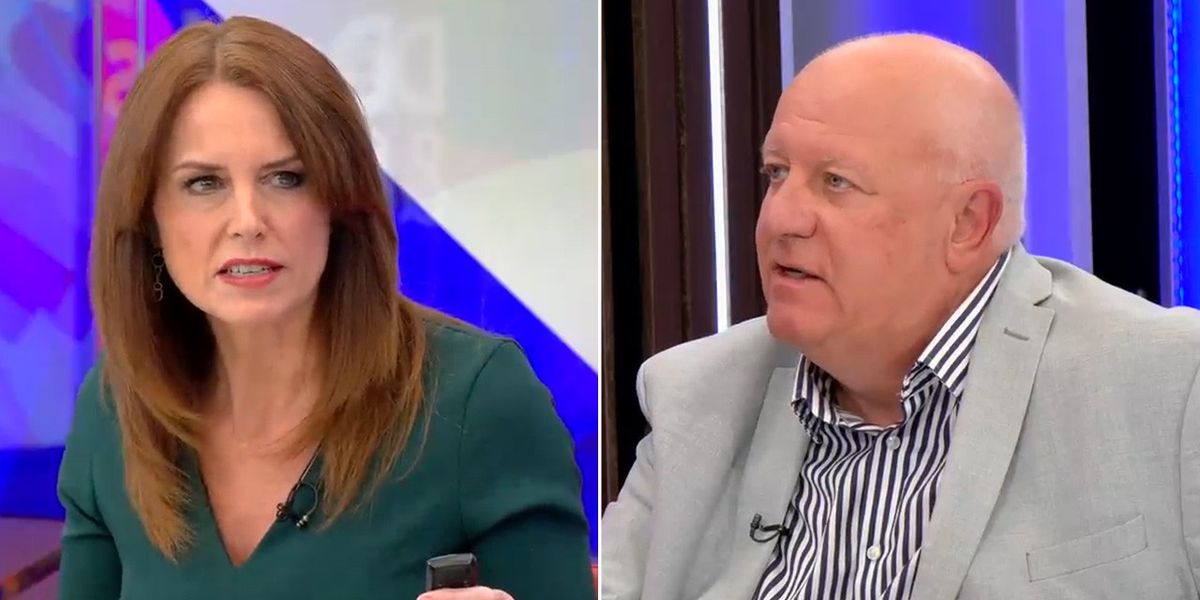The Heated Debate on Britain’s Role in the Ukraine Conflict: A Closer Look
In recent discussions surrounding the ongoing conflict in Ukraine, GB News presenter Bev Turner has sparked a significant debate regarding the British public’s stance on the UK’s involvement in supporting Ukraine against Russian aggression. As tensions escalate, particularly following Russian President Vladimir Putin’s latest threats to the West, the discourse around military support and its implications has become increasingly urgent.
Putin’s Stark Warnings
Vladimir Putin has made it clear that the use of British-owned missiles by Ukraine would represent a "significant change in the very nature of the conflict." In statements to Russian state media, he emphasized that such actions would not merely be about Ukraine striking back at Russia but would signify direct involvement from NATO countries, including the US and European nations. This escalation, according to Putin, could lead to a broader war, fundamentally altering the dynamics of the ongoing conflict.
The UK’s Position: A Divided Opinion
In the face of these threats, UK Prime Minister Sir Keir Starmer has defended Britain’s support for Ukraine, asserting that "Russia started this conflict" and thus holds the key to its resolution. However, Turner has voiced a contrasting opinion, suggesting that many British citizens are not in favor of the UK taking on the role of protector for Ukraine. She warned that continued military support could lead to more casualties, not just among Ukrainians and Russians, but potentially among British servicemen as well.
Turner’s comments reflect a growing concern among segments of the British public regarding the implications of escalating military involvement. She articulated a fear that the UK’s commitment to Ukraine could inadvertently lead the nation closer to a "thermonuclear war," emphasizing a lack of discourse around peace in the current narrative.
The Call for Peace vs. Pressure on Russia
The debate intensified as Lord Daniel Moylan and former Labour MP Bill Rammell weighed in on the situation. Moylan argued for a swift resolution in favor of Ukraine, suggesting that the ongoing conflict poses a threat not only to Ukraine but to Eastern Europe and beyond. He emphasized the urgency of terminating the war to prevent further loss of life and territorial expansion by Russia.
Conversely, Rammell contended that while peace is the ultimate goal, the West must exert pressure on Russia to achieve it. He pointed to the importance of intelligence assessments regarding potential Russian reactions to missile launches, suggesting that a show of strength is necessary to deter further aggression from Putin.
The Clash of Perspectives
The discussion on GB News highlighted a fundamental clash of perspectives. Turner challenged Rammell’s assertion that military action could be justified under strict rules of engagement, arguing that such actions would inevitably lead to civilian casualties and risk drawing the UK into a direct conflict with Russia. Her stance reflects a broader apprehension about the consequences of military escalation and the need for a more diplomatic approach to resolving the crisis.
Rammell, on the other hand, maintained that without a firm stance against Russian aggression, the situation could worsen, potentially leading to greater instability in the region. This divergence in views underscores the complexity of the conflict and the challenges faced by policymakers in navigating the delicate balance between supporting Ukraine and avoiding a wider war.
Conclusion: A Nation at a Crossroads
As the debate continues, it is clear that the British public remains divided on the issue of military support for Ukraine. Turner’s passionate plea for peace resonates with those who fear the consequences of further escalation, while others argue for a more assertive approach to deter Russian aggression. The situation remains fluid, and as Putin’s threats loom large, the UK must carefully consider its next steps in a conflict that has already claimed countless lives and reshaped geopolitical dynamics. The path forward will require not only strategic military considerations but also a commitment to dialogue and diplomacy to ensure a lasting resolution to the crisis.
